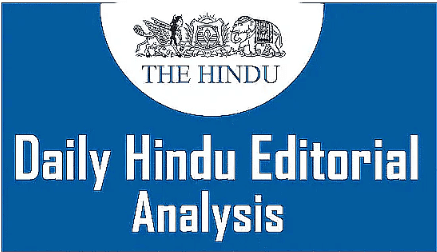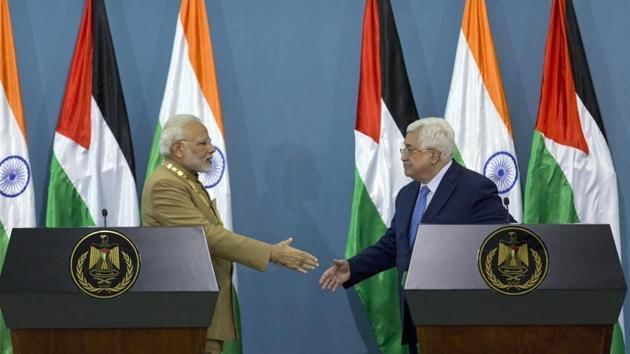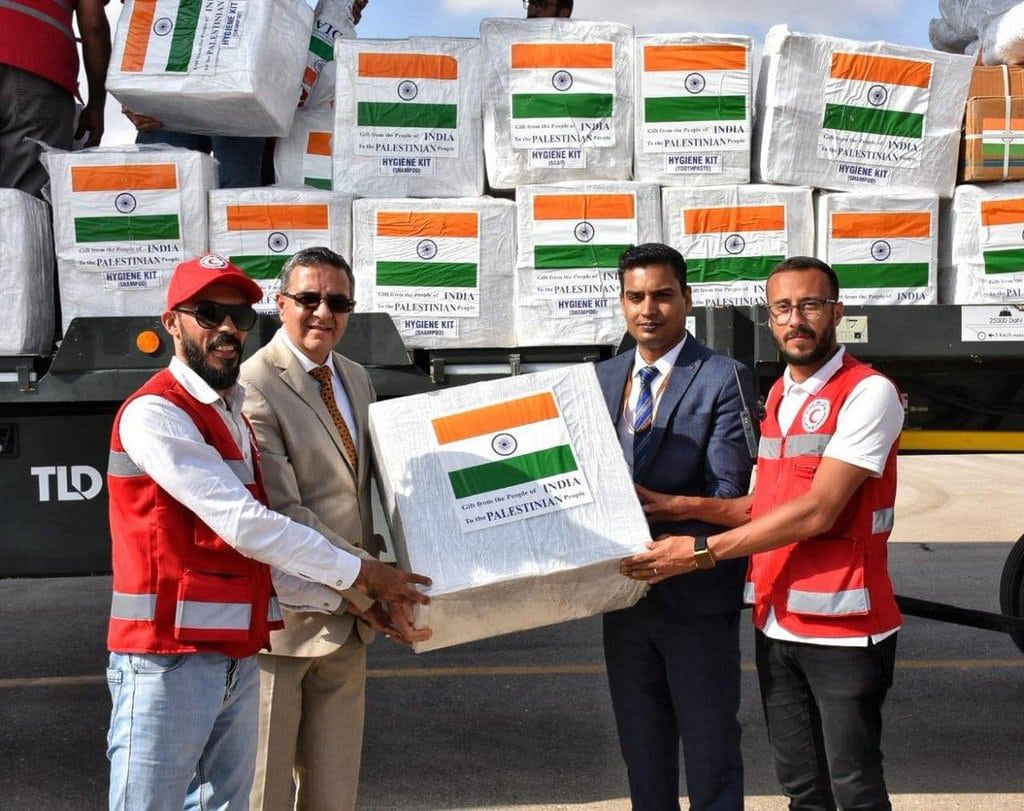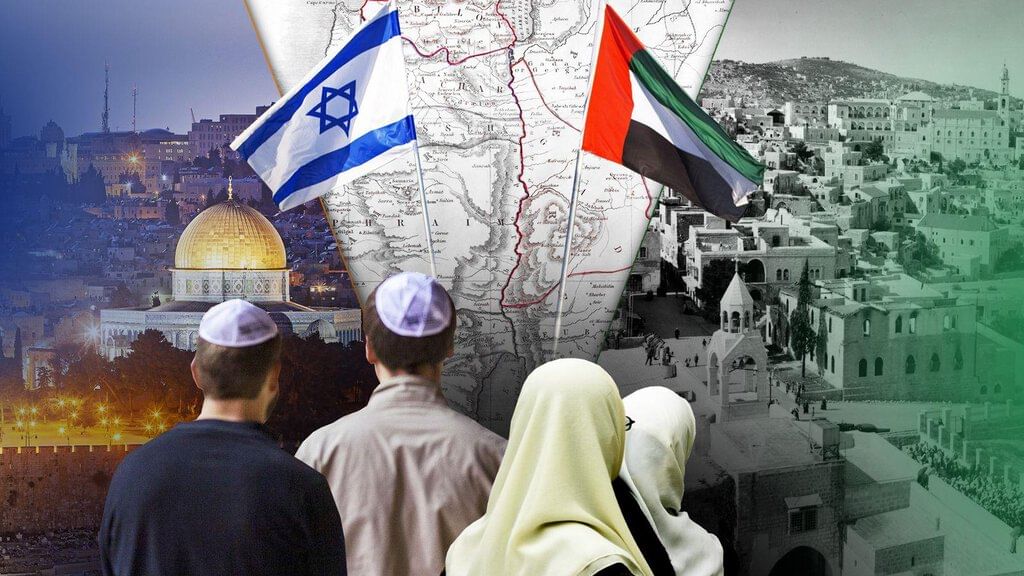UPSC Exam > UPSC Notes > Current Affairs & Hindu Analysis: Daily, Weekly & Monthly > The Hindu Editorial Analysis- 9th October 2024
The Hindu Editorial Analysis- 9th October 2024 | Current Affairs & Hindu Analysis: Daily, Weekly & Monthly - UPSC PDF Download

From solidarity to pseud, India’s shift on Palestine
Why in News?
India’s position on Palestine, once a symbol of its anti-colonial ethos, has been diluted since the end of the Cold War and has dramatically shifted over the past decade. The alignment with Israel, the marginalisation of Palestine, and a focus on transactional diplomacy are not isolated phenomena but interconnected trends shaped by an interplay of domestic and global factors.
About India-Palestine Relations
- India's connection with Palestine is a significant aspect of its foreign policy, rooted in historical ties and shared values.
- India is dedicated to supporting Palestinian interests and strongly believes in their right to self-determination and sovereignty.
- In 1974, India was the first non-Arab nation to recognize the Palestine Liberation Organization (PLO) as the true representative of the Palestinian people.
- India officially acknowledged Palestine in 1988 and established its Representative Office in Gaza in 1996, later moving it to Ramallah in 2003.
- India has consistently advocated for the rights of the Palestinian people on various international platforms.
- India supported United Nations resolutions that upheld Palestinian self-determination and urged Israel to follow international law.
- India backed the UN General Assembly Resolution 74/139 in 2020 and voted in favor of UNESCO's decision to grant full membership to Palestine in 2011.
- The visit of Indian Prime Minister Narendra Modi to Palestine in February 2018 was historic, marking the first visit by an Indian Prime Minister to the region.

Development Assistance
- India's support for Palestine goes beyond just political backing.
- It includes important development aid as well.
- In the past two years, India has provided around $141 million in different types of assistance to the Palestinian Authority.
- This amount includes $39 million specifically for administrative help.
- The aid focuses on key areassuch as:
- Education
- Health
- Infrastructure development
Economic Relations
- Trade between India and Palestine mainly happens through Israel.
- In 2020, the total trade volume was $67.77 million.
- India primarily exports marble, rice, and machinery to Palestine.
- In February 2022, the Indian Trade Promotion Council and the Ramallah Chamber of Commerce and Industry signed a memorandum of understanding.
- Various business seminars and exhibitions are held to encourage economic cooperation.
Humanitarian support
- India plays an important role in supporting Palestinian refugees by making donations to the United Nations Relief and Works Agency for Palestinian Refugees in the Near East (UNRWA).
- Since 2002, India has donated more than $36.5 million to UNRWA.
- Over the years, India has significantly increased its annual donations, raising it from $1.25 million to $5 million in 2018.
Challenges in India-Palestine Relations
- India has been forming closer ties with Israel, driven by both strategic and economic reasons.
- This trend is evident in India's decision not to support a recent UN resolution that called for a humanitarian cease-fire in Gaza.
- India’s growing collaboration in defense and technology with Israel, including significant arms purchases, reflects this shift in relations.
- Indian leaders have shown a stronger pro-Israel attitude, influenced by both ideological ties and the importance of working together on counterterrorism.
- This change has led to a more muted response to Palestinian issues, which is a shift from India's previous support for Palestine.
- India's growing relationship with Israel could impact its connections with Middle Eastern countries that back Palestine.
- Balancing these relationships is crucial, as India depends on these nations for energy security and economic cooperation.
- Public opinion and media in India have increasingly become supportive of Israel, influenced by right-wing political views and social media campaigns.
- This change in public sentiment poses challenges for India’s diplomatic stance on the Israel-Palestine conflict.
Way Forward for India-Palestine Relations
- India should adopt a balanced approach, showing support for a two-state solution while continuing its engagement with Israel on important issues.
- This balance is important to uphold India's long-standing commitment to Palestinian rights and its growing relationship with Israel.
- India can leverage its influence on international platforms to advocate for peaceful solutions and provide humanitarian aid to Palestine.
- Active participation in UN projects and other global forums can help India manage its complex diplomatic situation.
- Offering economic and humanitarian support to Palestine can strengthen India's dedication to the well-being of the Palestinian people and reduce any negative views regarding its ties with Israel.
- Increasing cultural and educational exchanges between India and Palestine can foster mutual understanding and good relations.
- Initiatives in public diplomacy can help bridge geopolitical divides and improve personal connections.
About Palestine
- Palestine is a country located in the southern part of West Asia, recognized by 145 of the 193 member states of the United Nations.
- It comprises the areas known as the Israeli-occupied West Bank, including East Jerusalem, as well as the Gaza Strip, which are sometimes referred to as the Occupied Palestinian Territories.
- The majority of Palestine's borders are adjacent to Israel, with Jordan and Egypt located to the east and southwest, respectively.
- Palestine asserts that Jerusalem is its capital and Ramallah serves as its administrative center.
- Since 2012, Palestine has held the status of a non-member observer state in the United Nations.
About Israeli-Palestinian conflict
- The ongoing Israeli-Palestinian conflict began during World War I. At that time, Britain took control of Palestine from the Ottoman Empire and set it up under the League of Nations.
- British authorities allowed a large number of Jewish immigrants to come to Palestine, which led to increased tensions and violence with the local Palestinian Arab community.
- By 1947, Britain passed the issue to the United Nations, which proposed a plan to divide Palestine into two independent governments: one for Arabs and one for Jews, with a separate area for Jerusalem. However, this plan was never put into action because a civil war started.
- The 1948 Palestine War resulted in the displacement of many Palestinian Arabs and led to the creation of the state of Israel, an event known as the Nakba.
- During the 1967 Six-Day War, Israel took control of the West Bank and Gaza Strip, which were previously under Jordan and Egypt, respectively.
- In 1988, the Palestinian Liberation Organization (PLO) declared the independence of Palestine. Then in 1993, it signed the Oslo peace agreements with Israel, which led to the establishment of a limited PLO government in the West Bank and Gaza Strip through the Palestinian Authority.
- In 2005, Israel pulled out of the Gaza Strip, but the area is still under military occupation by Israel.
- In 2007, Hamas took control of the Gaza Strip due to internal conflicts among Palestinian groups. Since then, the Palestinian Authority, led by Fatah, has had partial control over the West Bank, while Hamas has kept control of the Gaza Strip.
Conclusion
- India's relationship with Palestine is facing many challenges.
- These challenges are influenced by changes in global dynamics and local political factors.
- Despite these difficulties, India can take a balanced and proactive approach to navigate through these issues.
- By doing so, India may be able to continue supporting the aspirations of the Palestinian people.
- At the same time, this approach can help India promote its own strategic interests.
The document The Hindu Editorial Analysis- 9th October 2024 | Current Affairs & Hindu Analysis: Daily, Weekly & Monthly - UPSC is a part of the UPSC Course Current Affairs & Hindu Analysis: Daily, Weekly & Monthly.
All you need of UPSC at this link: UPSC
|
63 videos|5408 docs|1146 tests
|
FAQs on The Hindu Editorial Analysis- 9th October 2024 - Current Affairs & Hindu Analysis: Daily, Weekly & Monthly - UPSC
| $1. What led to India's shift in stance on Palestine? |  |
Ans. India's shift in stance on Palestine can be attributed to a combination of geopolitical factors, changing international alliances, and domestic political considerations. Over the years, India has balanced its support for Palestinian rights with its growing ties to Israel and the necessity of maintaining relationships with various Arab nations.
| $2. How has India's relationship with Israel evolved in recent years? |  |
Ans. India's relationship with Israel has strengthened significantly in recent years, marked by increased diplomatic, economic, and military cooperation. This evolution includes high-level visits, trade agreements, and collaboration in areas such as technology and defense, reflecting a pragmatic approach to foreign policy.
| $3. What are the implications of India's new stance on Palestine for its foreign policy? |  |
Ans. India's new stance on Palestine may lead to a reevaluation of its relationships in the Middle East. It could impact India's long-standing support for Palestinian statehood while also affecting its ties with Arab nations, as India navigates its interests in balancing relations with Israel and maintaining its historical support for Palestine.
| $4. How does India's public opinion influence its foreign policy on Palestine? |  |
Ans. Public opinion in India plays a crucial role in shaping foreign policy, particularly regarding sensitive issues like Palestine. While there is a significant segment of the population that supports Palestinian rights, the government's policies are also influenced by strategic considerations and the need to maintain good relations with Israel and Arab countries.
| $5. What role does international diplomacy play in India's position on Palestine? |  |
Ans. International diplomacy significantly influences India's position on Palestine. India's foreign policy is shaped by its relationships with major global powers, regional dynamics, and its participation in international forums. The country often seeks to balance its stance by advocating for dialogue and peace while addressing its strategic interests.
Related Searches
















